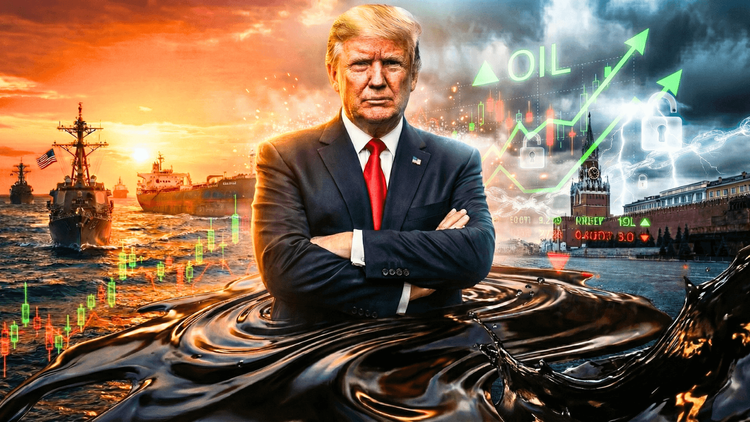Deep Sea Mining: Unlocking the Ocean's Hidden Treasures
Exploring the Future of Critical Mineral Independence through Deep Sea Mining

The US Congress has taken a significant step towards securing the nation’s future in critical minerals by funding a $2 million Pentagon study on deep sea mining. This initiative, as reported by the Wall Street Journal, will explore the feasibility of refining ocean-floor minerals within the US. This move is seen as crucial for bolstering national security and reducing dependence on foreign sources for these vital resources.
Background on Deep Sea Mining
Deep sea mining involves extracting minerals and metals from the ocean floor. These minerals are critical for various high-tech applications, including batteries for electric vehicles and renewable energy technologies. The global interest in deep sea mining has surged as terrestrial resources become increasingly scarce and difficult to access.
The Need for Critical Minerals
Critical minerals like nickel, manganese, and cobalt are essential for modern technology and defense systems. They are used in everything from smartphones to advanced military hardware. Securing a stable supply of these minerals is paramount for maintaining technological and defense capabilities.
US Dependence on Foreign Minerals
Currently, the US heavily relies on imports for critical minerals, posing significant risks. Dependence on foreign sources, particularly from countries like China, exposes the US to supply chain disruptions and geopolitical tensions. Reducing this dependence is a strategic imperative for national security.
The Pentagon's Role
The Pentagon has been tasked with conducting a feasibility study in partnership with an experienced entity in refining critical minerals and producing battery-grade metals. This study is a proactive step towards establishing a domestic supply chain for these essential resources, ensuring that the US can meet its own needs without external reliance.
Congressional Support
The initiative has strong backing from Congress, with the House Armed Services Committee instructing the Pentagon to allocate $2 million for the study. Representatives Carol Miller (R., W.Va.) and John Joyce (R., Pa.) have been vocal advocates, introducing legislation to promote deep sea mining in the US. This bipartisan support underscores the national importance of the initiative.
The Metals Company's Involvement
The Metals Company, a leader in deep sea mining research, is playing a pivotal role in this endeavor. They have applied for a $9 million grant under the Pentagon’s Defense Production Act Title III program to conduct feasibility work on a domestic refinery for nodule-derived intermediate products. This collaboration aims to leverage existing assets and expertise to kickstart production.
Potential Economic Impact
The economic potential of deep sea mining is staggering. Ocean floor reserves of metals like nickel, manganese, and cobalt are estimated to be worth between $8 trillion and $16 trillion. Establishing a domestic refining capability could lead to significant economic benefits, including job creation and reduced costs for critical materials.
Environmental Concerns
Despite the economic promise, deep sea mining raises serious environmental concerns. Scientists caution that much is still unknown about the deep ocean ecosystems. Mining activities could disrupt these fragile environments, exacerbating issues like pollution, trawling, and the climate crisis. Balancing economic interests with environmental stewardship will be crucial.
The Path Forward for the US
The feasibility study will commence once the annual defense budget is signed into law later this year. The study will outline a roadmap for sourcing and processing critical minerals domestically. This proactive approach will help the US develop a resilient supply chain and reduce its vulnerability to external shocks.
Comparative Analysis: US vs. China
China currently dominates the global supply of critical minerals, giving it a strategic advantage. The US must catch up to ensure its technological and defense capabilities are not compromised. The Pentagon's initiative is a step towards achieving metal independence and reducing the strategic gap with China.
Technological and Logistical Challenges
Deep sea mining poses several technological and logistical challenges. Extracting minerals from the ocean floor requires advanced technology and substantial investment. Additionally, logistical issues related to transportation and processing must be addressed to make deep sea mining viable on a large scale.
International Collaboration and Competition
While competition with countries like China is a driving factor, there is also potential for international collaboration. Working with allies could enhance technological capabilities and share the financial burden of deep sea mining projects. However, geopolitical competition remains a significant consideration.
Conclusion
The US Congress’s decision to fund a $2 million Pentagon study on deep sea mining marks a crucial step towards securing a stable supply of critical minerals. This initiative not only aims to reduce dependence on foreign sources but also to bolster national security and economic resilience. As the feasibility study progresses, it will be essential to address environmental concerns and technological challenges to ensure sustainable and responsible development of ocean-floor resources.






